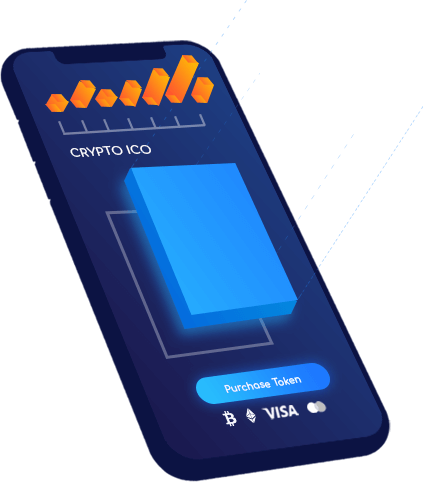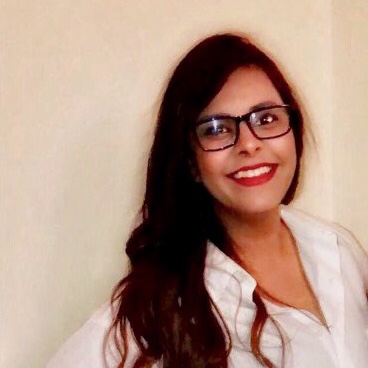
Paying through knowledge
Fundamentals
NABU Fundamentals

14 months of research and design, all founding members are current/past students of the US higher education system. Each member has a specialized skill that is pertinent to the success of Nabu including Finance, Business Management, Economics, Development, and Legal. Nabu was created to give students better options.
All members have actively researched the blockchain and cryptocurrency space. The members have a combined experience of 7+ years and continue to follow as new developments arise across the globe.
Through the development of blockchain, tokens will be tradable between platforms. As more platforms bring finance to the more than 2 Billion individuals currently without, Nabu will have the connections to give them the opportunity to attend accredited institutions.
Nabu is dedicated to the education sector. All parties involved will have to work together in order for the system to thrive. Bad actors will be punished and good actors will be rewarded. Together, the community will build itself to a sustainable system and ultimately remove obstacles in education.
Solution
Problem & Solution
Problem
Tuition for education is extraordinarily, if not prohibitively, expensive.
The financial burden of higher education is cumbersome. In the United States alone, there are currently over 44 million borrowers carrying an aggregate of $1.5 trillion in student loan debt. The average student in the Class of 2016 has $37,172 in debt. Approximately 15.7 million student loan borrowers are in student loan repayment, and approximately 10 million of these student loan borrowers are in student loan deferment, student loan forbearance or student loan default.


Solution
Nabu will reduce or eliminate the burden of high tuition by creating a token and associated ecosystem in the education sector.
Nabu will be used to pay for tuition credit hours, books, supplies, and other costs associated with education.
There will be a token that is the centerpiece of the entire Nabu platform (The Nabu Token). Version 1.0 of the Nabu platform will be a standard mobile app that uses Nabu’s decentralized token. Version 1.0 will be Android and iOS compliant and enable students to afford tuition fees in a seamless, safe, secure, and decentralized manner with minimal transaction cost.
NABU Platform
NABU Platform
Ecosystem for overcoming the high tuition fees in education.
A community for making the education experience deliver stronger outputs
while also giving students the capability to pay for high tuition fees.
Nabu will create five separate wallets – government, investor, academic institutions, students, as well as a general public wallet. A general ledger that displays payments made from a student to an institution will record all transactions. Parties will be named for ease of identification.
A Nabu landing site will enable each party to create its respective wallet and then buy or sell Nabu tokens using ETH, ERC20 and Fiat.
Version 2.0 will be a decentralized autonomous organization (the “Nabu DAO”). The Nabu team will decide whether to adopt Ethereum, EOS or another smart contract enforcing platform as Nabu’s blockchain backbone. Any of these platforms will enable Nabu to use self-enforcing smart contracts to reinvent the existing education and tuition paradigm. When Version 2.0 is launched, Nabu will cease to exist, and the system will be run by the Nabu DAO.
Coming Soon..
Android



NABU token
NABU Token
The Nabu token will be implemented on the Ethereum blockchain as a decentralized ERC20 token.

The Nabu token will be available for trade on different exchanges, and the general public/students/institutions can purchase or sell them. The token will be given to university students based on their performance in a semester. These students will use their Nabu tokens to pay for expenses associated with the university experience. As a semester progresses, professors will input grades into their online gradebook and simultaneously, a smart contract will calculate the commensurate number of tokens to be sent to the student’s wallet. This will lower grade inflation and will actively grade institutions fairly for current/future students.
700 billion tokens created at genesis. Supply not capped until an equilibrium is obtained. Deflationary, as tokens from curation will be used to purchase tokens from EtherDelta or other approved exchange and burned.
Team
Team

Creation of Nabu: Josh earned educational benefits after serving in the Air Force. Before he started a new semester at the University of Oklahoma he lost his job. The benefits received from Veteran’s Affairs included a housing allowance as well as full tuition assistance. Even though he could still afford his education, losing his job really opened his eyes to the burden associated with education. It made him question how the average student was able to afford books, supplies, and tuition while working two or more jobs and affording normal survival expenses. Through his realization, Josh wanted to make education more affordable. Nabu is the solution.
Josh has a background in Finance. He has worked for multiple large financial institutions with assets equaling $1B or more. He recently left the position of a Universal Banker where he managed high value accounts/individuals as well as sold company products to facilitate growth and recognition. He spent 4 years in the United States Air Force as an Armament Weapon Specialist loading multiple munitions on highly valuable aircraft in order to pursue further safety for the United States. He was awarded many honors regarding his dedication to the mission and his peers. Josh has nearly completed his bachelor’s degree at the University of Oklahoma, a major in Information Studies and a minor in Finance. He believes the convergence of Technology and Finance can greatly benefit the world in ways we as a society have not even conceived yet. His belief in the blockchain/cryptocurrency space has grown since he first really started to research the concept in 2016. “I created Nabu in the hope that I could make a difference in the education sector.”
Jon has a background in Business. He worked for one of the largest Retail/Employer Fortune 500 for the past half-decade. He held a management position in 2 separate departments which generated a multi-million dollar revenue between 2016-2017, an important division utilized for the continued growth of his company. He attended the University of Texas-San Antonio to obtain his Bachelor’s in Business Management. Jon was in charge of creating a loyal customer base and overseeing the continued sales within his department. He managed contract vender relations, maintaining an excellent business-customer basis. His other duties involved the supervision of distribution/receiving of products that are essential to the future of the company. Jon was brought into cryptocurrencies/blockchain after Josh explained his belief in their potential, at which point he began to research for himself. “Knowing friends and family currently handling student debt really hit home for me, I wanted to make sure future students didn’t have those barriers when trying to further their education.”
Aditya has a background in Economics. He has worked in financial services, starting work with a Fortune 500 company where he handled new accounts for retail clients. He followed this with working for a leading bank in Dubai in the risk analytics and portfolio management department, working with risk managers to manage commercial clients. He then moved to work in industry research for a leading consulting company, supporting research on financial institutions, specifically insurers in the US market, and generating business and consulting opportunities for the firm. Aditya is currently a graduate student in Hospitality Management at Oklahoma State University. His prior education consists of a bachelor’s degree in Economics from the University of London, UK, and a master’s degree in Economics from Gokhale Institute of Politics and Economics, India. Aditya believes blockchain technology and cryptocurrencies have the ability to disintermediate existing business models and dramatically alter the economic landscape for several industries. “I believe Nabu has the potential to provide monetary relief to individuals, societies and economies, from the financial burden of educational debt, so that they may focus their resources into other areas of significance.”
Surbhi has a background in Computer Science. She is currently pursuing her bachelor’s degree in Management Information Systems (MIS) at Midwestern State University. She interned as a research assistant at Bank of Baroda and as a software engineer at MWSU. During her time at MWSU she’s led a team on the development of an iOS mobile application for tracking the University shuttle. Aside from her technical experience she has been a member of pristine business organizations (Delta Sigma Pi) where she held various executive positions. She truly believes that the intersection of Finance and Technology (Fintech) is the next big step for the future and can benefit the society in many different ways. Being the student herself, she’s no foreigner to student debt and the many implications of it. “The rise of blockchain/cryptocurrency has unlocked various methods to conquer traditional finance and I believe that Nabu has the ability to help students further their education with the potential for less financial obligations.”
Liz is a third-year law student at the University of Houston Law Center (UHLC), focusing on the legal implications of disruptive technologies (specifically blockchain and its different applications across many industries). She is the Founder and President of the Blockchain and Cryptocurrency Law Association at UHLC, established to educate law students about blockchain technology and the opportunities its implementation will create for attorneys. Liz is also part of the UHLC’s Entrepreneurship and Community Development Clinic, which helps startups in the Houston area with the legal services they need to start and maintain a successful business. Her siblings began experimenting with crypto trading and mining early in 2017, which sparked her curiosity and led her to conduct research at UHLC. Her research includes: the use of cryptocurrency by terrorists, organized crime, and rogue nations; how blockchain will disrupt the communications industry; and a study of transnational blockchain and cryptocurrency regulations. “Nabu hits close to home. Being a college student for seven years and accruing student loans, I’ve experienced the stress and uncertainty that grew from carrying such a burden. I joined the Nabu team to learn from my teammates as well as help build a platform that reduces student’s economic stress, allowing them to focus efforts on achieving goals and a successful career.




Roadmap
Roadmap
Articles
Articles
What is blockchain ?
In the blockchain, bitcoins are registered to bitcoin addresses. Creating a bitcoin address is nothing more than picking a random valid private key and computing the corresponding bitcoin address.


Trading Platform
In the blockchain, bitcoins are registered to bitcoin addresses. Creating a bitcoin address is nothing more than picking a random valid private key and computing the corresponding bitcoin address.
Top 10 cryptocurrency
In the blockchain, bitcoins are registered to bitcoin addresses. Creating a bitcoin address is nothing more than picking a random valid private key and computing the corresponding bitcoin address.


Crypto ICO listing
In the blockchain, bitcoins are registered to bitcoin addresses. Creating a bitcoin address is nothing more than picking a random valid private key and computing the corresponding bitcoin address.
Videos
Videos
Contact
Contact us with any questions regarding NABU Token.
- Oklahoma City, OK, USA
- info@nabutoken.io
- Join us on Telegram
- Join us on Facebook
- Find us on Github
